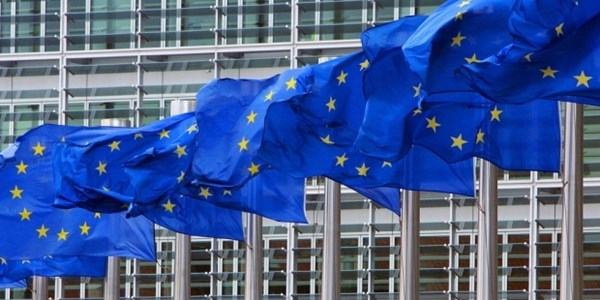European Commission: EU economy unharmed by Russian sanctions
The EU’s economy is not harmed by placing sanctions on Russia, Russia does not have enough money to develop its economy, and Russian counter-sanctions against the EU do not work – the exportation of agricultural goods and food products from the EU to Russia have adjusted to the new realities and grown by 16%.
According to LB.ua news outlet, this was the topic at a session of the NATO Permanent Representatives Committee on March 28, 2018, during discussion of the effect of EU sanctions on the economies of Russia and the EU.
Secretary-General of the European Commission Ilze Juhansone presented a report on this topic. She said that the effect of sectoral EU sanctions on Russia’s economy is limited, because the primary factor that influences Russia’s economy is world oil prices. Thus in 2017, after a two-year recession, the Russian economy grew by 1.5% compared to 2016. This was made possible by the increase in world oil prices, the gradual strengthening of the ruble, the drop in inflation, and the decrease in use of state reserves to support state companies and stabilize the world economic situation.
Russia’s access to international financial markets remains limited: Russia’s banking and finance sector depends on state-allocated funds.
Russia’s access to new energy technologies also remains limited.
The biggest challenge to the Russian economy is its inability to carry out the basic reforms which are needed for macroeconomic stability. In addition, the banking sector’s recovery is rather slow, and thus Russia does not have enough funds to develop its economy.
As for the effect of the EU’s sectoral sanctions against Russia on the economy of the EU itself, it remains insignificant and controllable. In 2016 it amounted to 0.1% of the EU’s GDP, and it was neutral overall (0%) in 2017. The effect on the economies of EU member-states depends on the level to which the national economy is dependent on Russia.
As for the effect of Russia’s counter-sanctions on EU agricultural and food products, even though during the first few years after they were introduced, the export levels of such products to Russia sharply decreased, it recovered by 16% in 2017. This concerns the “lux” class in particular (wine, chocolate, alcoholic beverages), although with respect to cheeses, fruit, chicken and milk powder, the total European export volume was lower than in 2013.
The Polish representative said in turn that, with the increase in the aggressiveness of Russia’s behavior, especially in the context of the Salisbury incident, it is necessary to place new restrictive measures on Moscow. For example, the duration of the economic sanctions should be extended from 6 months to a year, the sanctions should be intensified due to the non-recognition of the elections in Crimea (sanctions should be placed on the entities involved in organizing the March 18 elections), and restrictions should be placed on the aviation routes of European companies to the Simferopol airport.
